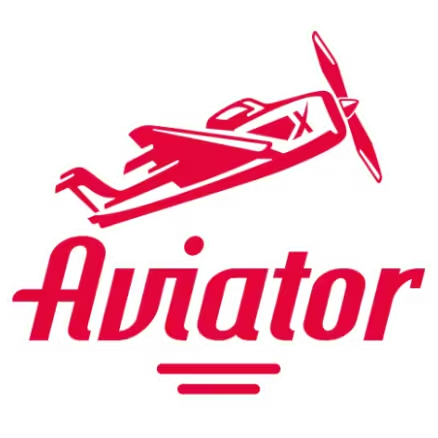
Aviator Game in Nigeria
Aviator Game, a unique online betting experience with a 97% RTP. Developed by Spribe and licensed by top authorities, it offers a secure and engaging gaming experience for players.

- Where to Play Aviator Game
- The Best Casinos to Play Aviator
- Aviator Login and Registration
- Overview of the Aviator Game
- Aviator App Download
- Aviator Betting Procedures
- Instructions for Playing Aviator Game
- Try the Aviator Game Demo
- Strategies for Winning in Aviator Online
- Earning Money Through Aviator Game
- Why Aviator is a Player Favorite
- Selecting the Best Online Casino
- Aviator Game for Money
- Understanding the Money-Winning Aviator Game
- Conclusion
- FAQ
The Aviator game, a brainchild of Spribe, has transformed the gaming landscape in Nigeria. Its simple yet engaging format is a hit among players who enjoy the thrill of anticipation and quick decision-making. Let’s explore the game’s key features and why it has become a fan favorite.
| Aspect | Detail |
| Developer | Spribe |
| Game Type | Social Multiplayer |
| Year of Launch | 2019 |
| RTP (Return to Player) | 97% |
| Compatible Devices | Desktop, Tablet, Mobile |
| Betting Range | 30 – 30,000 NGN |
| Min/Max Multiplier | 1 – 1,000x |
| Licenses & Certifications | MGA, UKGC, WCGRB |
Where to Play Aviator Game
Aviator’s popularity has led to its availability on numerous online gaming platforms. Each platform offers unique features and bonuses, enhancing the overall gaming experience. Below is a guide to some of the top platforms where you can enjoy the Aviator game.
- 1Win: Known for its generous bonus offers and user-friendly interface.
- Mostbet: Offers a combination of free spins and bonus bets, appealing to both slot and strategy game enthusiasts.
- BetWinner: Provides a substantial first deposit bonus and a wide range of gaming options.
These platforms not only host Aviator but also provide additional benefits to enhance your gaming sessions.
The Best Casinos to Play Aviator

1Win, operating under the gaming license 8048/JAZ2018-040, offers an extensive range of gaming options. Known for its robust bonus structure, it has become a popular choice for online gaming enthusiasts.

Holding the gaming license No. 8048/JAZ2016-065, Mostbet stands out for its diverse gaming experience and attractive bonus system. It’s known for its user-friendly platform and commitment to player satisfaction.

BetWinner operates under the Curacao license No. 8048/JAZ, offering a wide variety of gaming options along with advantageous bonus schemes. It is recognized for its commitment to providing a comprehensive gaming experience.
Aviator at 1Win

1Win stands out as a premier destination for playing Aviator, especially for new players. The platform offers an impressive bonus of +500% on the first four deposits, providing a significant boost to your initial gaming capital. This offer is exclusive to new 1Win clients, making it an attractive option for those starting their Aviator journey.
Besides the generous bonus, 1Win is also appreciated for its ease of use and reliable gaming license (8048/JAZ2018-040), ensuring a secure and fair gaming environment. The platform’s interface is designed for intuitive navigation, making it simple for players to access and enjoy the Aviator game.
Aviator at Mostbet

Mostbet offers an enticing mix of bonuses for Aviator enthusiasts. New players receive a 125% bonus plus 250 free spins on their first deposit, along with an additional 30 free spins upon signing up. Alternatively, players can choose a 125% first deposit bonus with 5 free bets in Aviator. Furthermore, regular tournaments and special events are organized, providing additional opportunities for players to win big and enhance their gaming experience.
The platform is known for its diverse gaming options and holds a reputable gaming license (No. 8048/JAZ2016-065). Mostbet’s user-friendly design and promotional offers make it an excellent choice for both beginners and experienced Aviator players.
Aviator at BetWinner

BetWinner offers a compelling reason to play Aviator on their platform – a first deposit bonus of up to 125% of the deposit amount. This bonus provides a substantial increase to the player’s initial funds, allowing for an extended gaming experience. In addition, BetWinner frequently updates its gaming portfolio, ensuring fresh and diverse gaming options for Aviator enthusiasts.
With its Curacao license (No. 8048/JAZ), BetWinner ensures a secure and fair gaming environment. The platform is also known for its wide selection of games and user-friendly interface, making it a popular choice among Aviator players.
Aviator Login and Registration
To start your journey with Aviator, the first step is selecting a preferred casino offering the game. Then, proceed with registration and login. While the process may vary slightly between casinos, the general steps are similar, ensuring a seamless experience for new users.
- Choose a reputable casino that hosts the Aviator game.
- Click the registration option – available through phone, email, or social networks.
- Complete the registration form with accurate information.
- Verify your account via email or SMS, as required by the casino.
- Once registered, log in using your credentials to start playing.
Remember, registration procedures may differ slightly, but they are generally straightforward, enabling quick access to the Aviator game.
Overview of the Aviator Game
Aviator, a pioneering game in iGaming, offers an exhilarating experience unlike any other. At its core, it’s a game of quick decisions and faster reactions, where players can multiply their bets in mere seconds. Aviator’s unique approach to gaming, combining simplicity with high-stakes excitement, has revolutionized the industry. Its reliance on a provably fair system further reinforces its appeal, providing a transparent and trustworthy gaming environment.
The essence of Aviator lies in its rapid gameplay. Players place their bets and watch as the multiplier scale increases. The objective is simple yet thrilling: cash out before the plane flies away. This simplicity, coupled with the potential for significant returns, makes Aviator a standout in the realm of online gaming.
Objective of Aviator Game

The primary goal in Aviator is straightforward: maximize your winnings before the lucky plane departs. Players must remain alert, deciding when to cash out as the multiplier increases. It’s a test of nerve and timing, where the decision to cash out at the right moment can lead to substantial rewards. However, hesitation or delay can result in a loss, adding a layer of suspense to each round.
Aviator’s appeal lies in this balance of risk and reward. The game challenges players to assess the situation quickly and act decisively. Success in Aviator is not just about luck; it’s about strategic timing and understanding the game’s dynamics.
Key Information
Understanding the key features of Aviator is essential for both new and experienced players. Below is a detailed breakdown of the game’s main components and how they function.

- Bet & Cash Out: Players select their bet amount and press “Bet”. Two simultaneous bets can be placed, adding an extra layer of strategy.
- Auto Play & Auto Cash Out: These features automate betting and cashing out based on predefined conditions, perfect for consistent gameplay.
- Live Bets & Statistics: The game interface displays live bets from all players and detailed statistics, including top wins and round multipliers.
- Free Bets: Occasionally, players receive free bets, either from the game operator or through special features.
- Randomisation: Each round’s multiplier is determined by a provably fair algorithm, ensuring fairness and transparency in the game’s outcomes.
- Return to Player: Aviator boasts an impressive RTP of 97%, indicating high average returns for players over time.
Understanding of Aviator’s key aspects sets the stage for exploring its more intricate features, such as game mechanics, chat functionalities, and betting strategies.
Game Mechanics
The mechanics of Aviator offer a dynamic and intuitive gaming experience. Players initiate the game by placing their bets, with the choice to engage in one or two bets concurrently, adding a layer of strategic depth. The essence of the game revolves around the critical decision of when to cash out as the multiplier escalates. This decision-making is pivotal; a timely cash out leads to a win based on the current multiplier, while delay results in a forfeit of the bet.
Aviator also integrates automated features such as Auto Play and Auto Cash Out, enabling players to predefine their gaming strategy. These features, along with the live betting statistics, empower players with enhanced control and strategic insight, significantly impacting their gaming approach.
Return to Player (RTP)
Aviator’s RTP, set at an impressive 97%, signifies a high chance of winning for players. This rate is a pivotal factor in its appeal, suggesting that most rounds will result in favorable outcomes.
The high RTP underscores Aviator’s fairness and reliability, positioning it as a game that balances entertainment with rewarding possibilities. For players, this translates to a game that is exciting to play and offers real chances for winning.
Chat Feature in Aviator
The chat feature in Aviator is more than just a communication tool; it’s a gateway to a community of players. Here, gamers can exchange thoughts, celebrate wins together, and discuss tactics, enriching the overall experience.

- Exchange of Thoughts: Players can share strategies and experiences, enhancing collective knowledge.
- Celebration of Wins: Victories become more enjoyable as players celebrate together, fostering a sense of camaraderie.
- Discussion of Tactics: The chat allows players to discuss and refine their tactics, leading to a more engaging gaming experience.
This social element transforms Aviator from a solitary betting game into a shared experience, fostering connections and adding a layer of enjoyment that extends beyond the game itself.
Live Betting Statistics in Aviator
The live betting statistics in Aviator provide a dynamic layer of transparency and strategy. These statistics offer a real-time overview of the game’s trends and outcomes, guiding players in their betting decisions.

- Real-Time Trends: Players can see how the game is progressing in real time, allowing them to adjust their strategies accordingly.
- Outcome Insights: Understanding past and current outcomes helps in making more informed betting decisions.
- Strategic Guidance: The statistics serve as a tool for players to analyze and plan their next moves, adding depth to the gameplay.
This feature not only adds to the game’s integrity but also elevates it, as players can use this information to refine their strategies and enhance their chances of success.
Aviator App Download
The Aviator game elevates mobile gaming with its user-friendly and feature-rich app, designed for avid gamers on the go. The process of downloading and installing the Aviator app is straightforward, providing players with quick access to this thrilling game. Here’s how you can get started:

- Find the App: Visit the official website of your chosen online casino that offers Aviator. Navigate to their mobile gaming section to locate the Aviator app.
- Compatibility Check: Ensure that the app is compatible with your device, whether it’s an Android or iOS smartphone or tablet.
- Secure Download: Download the app from a reliable source to guarantee security and functionality. Avoid third-party sites for a safer experience.
- Installation: Follow the prompts to install the app on your device. This usually involves granting necessary permissions for optimal performance.
- Account Setup: Open the app and either log in to your existing casino account or sign up for a new one directly within the app.
- Game Access: Once logged in, navigate to the Aviator game within the app and start playing. Enjoy the full range of features, optimized for your mobile device.
With the Aviator app, players can indulge in their favorite game anytime, anywhere, with the same immersive experience as the desktop version.
Aviator Betting Procedures
The betting procedures in Aviator are designed to be intuitive yet offer depth for strategic play. As a player, your main objective is to determine the best moment to cash out, maximizing your potential earnings. Each round in Aviator starts with players placing their bets. The game accommodates a wide range of betting preferences, making it accessible to casual players and high rollers alike. Once the bet is placed, the focus shifts to the multiplier, which starts to climb. This phase is critical as it requires players to make quick, calculated decisions based on the rising multiplier and their assessment of risk.
Aviator’s betting dynamics are enhanced by the inclusion of features such as Auto Play and Auto Cash Out. These tools allow players to automate their betting and cashing out process based on predefined settings. For instance, Auto Cash Out can be configured to automatically collect winnings at a certain multiplier. This automation adds an element of strategy and convenience, especially for players who prefer a consistent betting pattern or those who enjoy multitasking while playing.
Instructions for Playing Aviator Game
Engaging in the Aviator game requires a blend of quick reflexes, keen observation, and strategic planning. This guide provides step-by-step instructions to navigate the game effectively, enhancing your playing experience.
- Game Access: Start by accessing Aviator within your chosen online casino platform.
- Understanding the Interface: Familiarize yourself with the game’s interface, including the location of the bet placement buttons, the cashout button, and the display of the multiplier.
- Observing the Trends: Before placing bets, observe a few rounds to understand the typical multiplier patterns and the timing of the plane’s departure.
- Initial Betting: Begin with smaller bets to get a feel for the game’s pace and mechanics.
- Strategy Application: Implement the betting strategy you are comfortable with, whether it’s a conservative, aggressive, or a balanced approach.
- Adjusting to the Game Flow: Be prepared to adjust your strategy based on the outcomes of previous rounds and your current bankroll status.
- Utilizing Auto Features: If you prefer, make use of the Auto Play and Auto Cashout features to automate part of your gameplay based on your predefined criteria.
By following these instructions, players can fully immerse themselves in the Aviator game, enjoying both the thrill of quick wins and the satisfaction of a well-implemented strategy.
The Mechanics of Betting in Aviator
Understanding the mechanics of betting in Aviator is crucial for both newcomers and experienced players. This high-paced game revolves around a rising multiplier and timely cash outs. Here’s a breakdown of the betting process:

- Placing Bets: Players start by setting their bet amount. Aviator allows flexibility in betting, accommodating various strategies and bankrolls.
- Multiplier Increase: As the game begins, a multiplier scale starts to grow. This multiplier represents the potential winnings if a player cashes out at that moment.
- Decision Time: Players must decide when to cash out. The longer you wait, the higher the potential multiplier, but the risk of the plane flying away also increases.
The thrill of Aviator lies in this balance of risk and reward, where each player’s strategy can lead to significantly different outcomes.
Strategies for Betting in Aviator
Developing a strategy for betting in Aviator can enhance your gaming experience and potentially increase your winnings. Here are some strategies players might consider:

- Conservative Play: Set a low target multiplier for cashing out. This strategy focuses on frequent small wins, reducing the risk of losing a bet.
- Aggressive Strategy: Wait for higher multipliers before cashing out. This approach carries more risk but offers the chance for larger payouts.
- Balanced Approach: Alternate between conservative and aggressive strategies based on the game flow and your risk tolerance.
No single strategy guarantees success in Aviator, but understanding these approaches can help you find a style that suits your play preference.
Managing Bets and Cashouts
Effective management of bets and cashouts is key to a successful gaming session in Aviator. Players need to balance their betting amounts with their cashout timings to optimize their chances of winning. Here’s how you can manage your bets and cashouts effectively:

- Bet Size Management: Adjust your bet size based on your bankroll and the game’s recent trends. Avoid placing bets that are too high relative to your total balance.
- Timely Cashouts: Monitor the multiplier growth and cash out at a point that aligns with your strategy, whether it’s a conservative or aggressive approach.
- Risk Assessment: Regularly assess the risk and adjust your betting strategy accordingly. Stay aware of your recent wins and losses to make informed decisions.
By managing your bets and cashouts thoughtfully, you can maintain a healthy balance and enjoy sustained gameplay.
Automated Play and Auto-Cashout Features
Aviator’s automated features, namely Auto Play and Auto Cashout, add a layer of convenience and strategic depth to the game. These features allow players to set their gaming strategy and let the game execute it automatically.

- Auto Play: This feature enables players to automate the betting process. You can set the game to place bets automatically based on your chosen criteria, such as bet size and number of rounds. This is particularly useful for players who prefer a consistent betting pattern or those who want to play without constant manual intervention. Auto Play is ideal for strategic players who want to focus on game analysis and decision-making rather than the mechanics of betting.
- Auto Cashout: With Auto Cashout, players can set a specific multiplier at which their bets will automatically be cashed out. This feature is ideal for those who have a clear cashout target and wish to stick to a particular strategy without the temptation to wait for higher multipliers. Additionally, it allows players to manage risk effectively, securing profits before sudden market changes can affect their returns.
Try the Aviator Game Demo
For those new to Aviator or looking to refine their strategy without financial risk, the Aviator game demo is an invaluable tool. The demo version replicates the real game’s environment, offering a realistic experience. Here’s how to make the most of the Aviator demo:

- Finding the Demo: Access the demo version on the casino’s website where Aviator is hosted. Look for the ‘Demo’ or ‘Free Play’ option.
- Exploring Features: Use the demo to familiarize yourself with the game’s interface, betting options, and the mechanics of the multiplier.
- Practicing Strategies: Experiment with different betting strategies to see how they play out without any real money on the line.
- Understanding Game Dynamics: Pay attention to how the multiplier changes and develop a sense of timing for cashing out.
- Transition to Real Play: Once you feel confident, you can transition to the real money version of Aviator, applying the insights gained from the demo.
The demo version of Aviator is an excellent way to gain experience and build confidence, serving as a practical learning platform for players.
Strategies for Winning in Aviator Online
Winning in Aviator requires more than just luck; it demands a blend of strategy, timing, and sometimes, intuition. While there is no one-size-fits-all strategy, here are some effective approaches to increase your chances of success:

- Risk Management: Allocate your bankroll wisely. Decide on the percentage of your bankroll you are willing to bet in each round to maintain control over your finances.
- Setting Realistic Goals: Determine your target multiplier for each session. This could be a conservative multiplier for consistent but smaller wins, or a higher one for potentially larger payouts.
- Observational Tactics: Spend time observing the game trends. Look for patterns in the multipliers where you might have the best chance to cash out successfully.
- Varying Bet Sizes: Consider varying your bet sizes based on the outcomes of previous rounds and the health of your bankroll.
- Utilizing Auto Features Smartly: Auto Play and Auto Cashout can be powerful tools when used with a clear strategy in mind. Set these features according to your game plan.
Implementing these strategies in Aviator can significantly enhance your gaming experience and potentially lead to more successful outcomes.
Earning Money Through Aviator Game
Aviator is not only a source of entertainment but also a potential avenue for earning money. While it’s important to approach the game with caution and treat it as a form of entertainment, there are strategies to maximize winning potential. Here are some key points to consider when aiming to earn through Aviator:

- Understanding RTP: Remember that Aviator has a high Return to Player (RTP) rate. This means that, over time, the game is designed to return a significant portion of the total bets to players.
- Smart Betting: Employ smart betting strategies. This involves setting betting limits, understanding when to take risks, and knowing when to quit.
- Learning from Demo Play: Utilize the demo version of Aviator to hone your skills and strategies without risking real money.
- Bankroll Management: Effectively manage your bankroll. Only bet what you can afford to lose, and avoid chasing losses with bigger bets.
- Using Bonuses and Promotions: Take advantage of any bonuses or promotions offered by online casinos, as these can increase your playtime and potential earnings without additional risk.
While earning money through Aviator can be exciting, it’s vital to play responsibly and treat gaming as a form of paid entertainment rather than a guaranteed income source.
Why Aviator is a Player Favorite
Aviator has rapidly become a favorite among online game players due to its unique blend of simplicity, excitement, and social interaction. Below are key factors contributing to its popularity:
- Engaging Gameplay: The thrill of watching the multiplier increase and deciding the perfect moment to cash out makes each round exhilarating.
- Simple Mechanics: The game’s straightforward design makes it easy for anyone to understand and play, appealing to both novices and seasoned gamers.
- Social Features: The chat feature and the ability to see others’ bets and cashouts add a communal aspect, making it more than just a solitary experience.
- High RTP: The game’s high RTP rate is appealing as it suggests a higher likelihood of winning compared to many other online games.
- Provably Fair System: The transparency and fairness provided by the provably fair system give players confidence in the integrity of the game.
- Mobile Accessibility: The availability of Aviator on mobile devices allows players to enjoy the game anywhere, at any time.
These elements combine to make Aviator a game that is not only fun and exciting but also trustworthy and accessible, leading to its widespread popularity.
Selecting the Best Online Casino
Choosing the right online casino for playing Aviator is crucial for a safe and enjoyable gaming experience. Factors to consider go beyond just the availability of the game. Here’s a comprehensive checklist to help you select the best online casino:
- License and Regulation: Ensure the casino is licensed and regulated by a reputable authority. This guarantees fair play and security.
- Game Selection: Look for casinos offering a diverse range of games, including Aviator. A varied selection indicates a well-rounded platform.
- Bonus and Promotions: Compare bonuses and promotions across casinos. Look for offers like welcome bonuses, free spins, or loyalty programs.
- User Experience: The casino should have a user-friendly interface, reliable customer support, and mobile compatibility for on-the-go gaming.
- Payment Options: Check for multiple, secure payment methods for deposits and withdrawals. Fast transaction times are a plus.
- Reputation and Reviews: Read user reviews and research the casino’s reputation online. Player feedback can provide valuable insights.
By carefully evaluating these factors, you can find an online casino that not only offers Aviator but also ensures a safe, enjoyable, and rewarding gaming experience.
Aviator Game for Money
Playing Aviator for real money adds an element of excitement and challenge to the game. However, it’s important to approach this responsibly. Here are some key points to keep in mind when playing Aviator for money:

- Understanding the Game: Be well-versed with the game mechanics and rules before betting real money. The demo version can be a useful practice tool.
- Setting a Budget: Establish a budget for your gaming sessions and stick to it. This helps in managing your finances and avoiding overspending.
- Betting Strategies: Implement betting strategies that balance risk and reward. Adapt your strategy based on the game’s progress and your experience.
- Managing Emotions: Stay level-headed, especially after a loss. Chasing losses can lead to greater financial risks.
- Withdrawal Strategy: Have a plan for your winnings. Decide when and how much to withdraw to avoid losing your earnings back to the game.
- Playing Responsibly: Remember that Aviator is a form of entertainment. Avoid treating it as a primary source of income.
Playing Aviator for money should be enjoyable and thrilling, but it’s essential to do so responsibly, keeping these guidelines in mind.
Understanding the Money-Winning Aviator Game
The Aviator game offers a distinctive approach to winning money, combining entertainment with potential financial gains. To excel in this game, it’s important to understand its unique aspects and how they can be leveraged for monetary success. Below are key points that elucidate the money-winning potential of Aviator:
| Aspect | Description |
| Dynamic Multiplier System | Aviator’s multiplier system is dynamic, offering increasing potential wins as the multiplier grows, but also increasing risk. |
| Timely Decision-Making | Success in Aviator hinges on making timely decisions about when to cash out, balancing the temptation for higher multipliers against the risk of losing a bet. |
| Risk Versus Reward | Players must constantly evaluate the risk-reward scenario in each game round, making strategic decisions based on their risk appetite and gaming goals. |
| Utilization of Features | Leveraging features like Auto Play and Auto Cashout can help in executing a predefined strategy and managing the gameplay effectively. |
Understanding these aspects of Aviator can significantly enhance your chances of winning money while ensuring the game remains an enjoyable experience.
Use the Little Airplane App to Make Money
The Aviator game, often referred to as the Little Airplane, can be a fun way to potentially earn money. Here’s how you can optimize your use of the app for financial gains:
- Practice with the Demo: Use the demo version to understand the game mechanics without financial risk. This helps in developing a feel for the game’s rhythm and timing.
- Implement Strategies: Apply different betting strategies to see which aligns best with your playing style and risk tolerance.
- Stay Informed: Keep abreast of any updates or changes in the game, as these can impact your gameplay and strategies.
- Regular Play: Consistent play can lead to better understanding and improved decision-making in the game.
While the Aviator game can offer financial rewards, it’s important to play responsibly and treat it as a form of entertainment rather than a guaranteed income source.
Conclusion
Aviator has emerged as a revolutionary game in the online gaming sphere, captivating players with its unique blend of simplicity, strategy, and excitement. Its ability to provide an engaging gaming experience while offering the chance for monetary gains makes it a standout choice among online games.
For players seeking an enjoyable gaming experience with the potential for financial rewards, Aviator represents an ideal choice. However, it’s crucial to approach the game with a strategy, a clear understanding of its mechanics, and most importantly, a responsible gaming attitude.